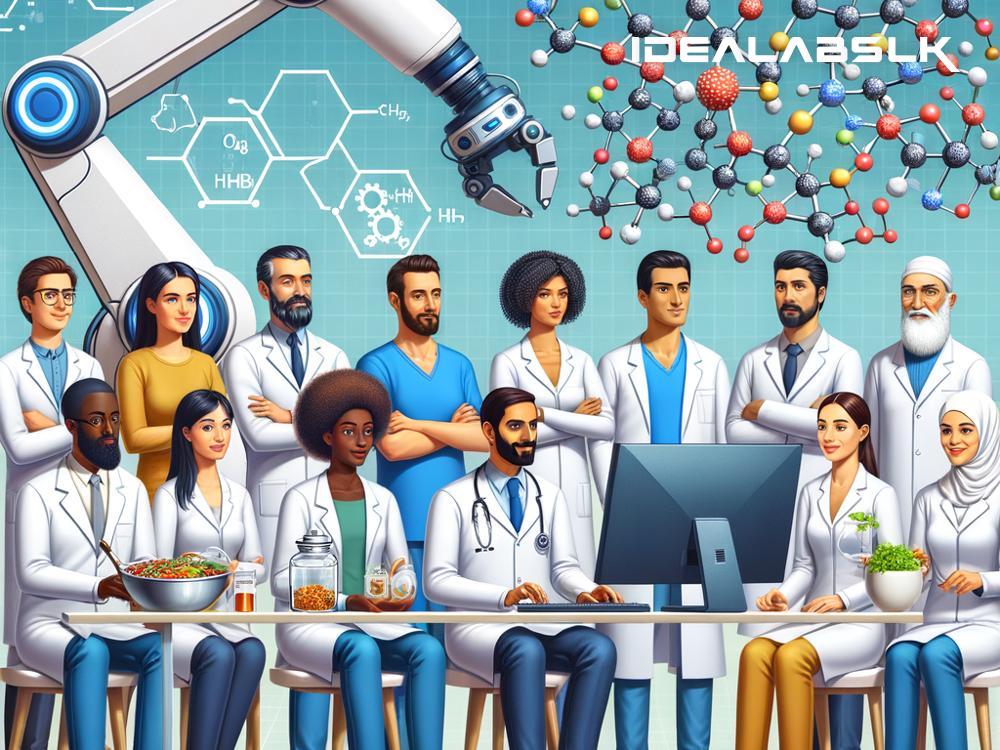The Role of AI in Enhancing the Nutritional Quality of Food
In recent years, artificial intelligence (AI) has proven to be a game-changer across various industries, from technology to healthcare, and has now made significant strides in the domain of food and nutrition. The increasing concern over healthy eating habits and the demand for nutritional food has pushed researchers and industries to find innovative solutions. AI, with its capacity to analyze complex data and provide precise solutions, is at the forefront of improving the nutritional quality of food. Let's explore how AI is making food healthier for us, in the simplest terms possible.
What is AI?
Artificial intelligence, or AI, may sound like a concept straight out of a science fiction movie, but it's pretty simple at its core. Imagine teaching a computer to think, learn, and make decisions like a human. That's AI – smart technology that learns from experience and improves over time. This technology is now helping us tackle some of the most challenging issues in the food industry, including improving nutritional content.
How is AI Being Used?
-
Analyzing Nutritional Content: AI systems can scrutinize vast amounts of data on food nutrition. This means they can analyze different food items to understand their nutritional content accurately. For instance, AI can examine hundreds of fruits and vegetables to recommend which ones are the best sources of vitamins or minerals. This information is crucial for consumers looking to make healthier choices and for companies aiming to manufacture nutritionally rich food products.
-
Personalized Nutrition Plans: One size does not fit all, especially when it comes to nutrition. AI is now used to create personalized nutrition plans for individuals. By considering a person's age, gender, health status, and dietary preferences, AI can suggest a diet plan that caters to their specific nutritional needs. This approach can significantly improve a person's health by providing them with exactly what their body needs.
-
Improving Food Production: The journey of food from farms to our plates is complex and involves several steps, each of which can affect the nutritional quality of food. AI is being used to optimize these processes to ensure that the food retains its nutritional value. For instance, AI can predict the best time to harvest crops, identify the optimal conditions for transporting and storing food, and even suggest the healthiest methods for processing foods.
-
Developing Nutrient-Rich Foods: AI is also playing a pivotal role in the innovation of food products. Food scientists are using AI to analyze and create new food items that are both delicious and nutritionally optimized. For example, AI can help develop a new snack that contains the perfect balance of proteins, fats, and carbohydrates, or suggest modifications to existing recipes to enhance their nutritional profile.
-
Assessing Food Trends and Habits: Understanding consumer behavior is key to improving the nutritional quality of food on a larger scale. AI tools analyze trends and eating habits, providing valuable insights into what people prefer to eat and why. This information enables food companies to adjust their strategies, focusing more on healthier food options that meet consumer demand.
The Bigger Picture
The potential benefits of AI in improving the nutritional quality of food are immense. By offering detailed insights into the nutritional content of food, personalizing diet plans, enhancing food production processes, developing nutritious food products, and understanding consumer behavior, AI is fundamentally changing our approach to nutrition and healthy eating.
However, it's essential to remember that technology is merely a tool. The choice to eat healthily, to select better food options, and to prioritize our nutrition is ultimately ours. AI can guide us, make recommendations, and provide us with healthier options, but embracing those choices is up to us.
Final Thoughts
The integration of AI in the food and nutrition industry is revolutionizing how we think about and consume food. As technology continues to evolve, we can expect even more innovative solutions to emerge, making healthy eating easier and more accessible for everyone. The future of food, powered by AI, looks not only smarter but healthier as well.
In embracing AI, we're not just benefiting from its ability to crunch numbers and analyze data; we're leveraging its potential to make positive changes in our lives and society, starting with what we eat. The burgeoning relationship between AI and nutrition is a testament to how technology can be used for the greater good, ensuring that our meals are not just satisfying but also nutritionally enriching.

